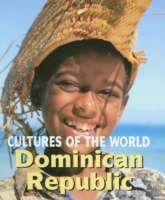
“Explores the geography, history, government, economy, people, and culture of the Dominican Republic”–Provided by publisher.

“Explores the geography, history, government, economy, people, and culture of the Dominican Republic”–Provided by publisher.
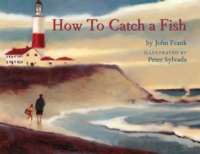
Thirteen linked verses and handsome, mood-drenched paintings show how we catch fish from New England to the Arctic, to Japan and Namibia and beyond. This lovely picturebook about fishing, geography, people and customs, and the bond between parent and child fishing together will appeal to everyone who’s cast a line in the water.

When her dog becomes lovesick for the moon, a young Cuban girl and her uncle call the moon down to give the dog a kiss, with surprising results.
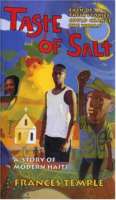
Every Life Makes a Story. Djo has a story: Once he was one of “Titid’s boys,” a vital member of Father Jean-Bertrand Aristide’s election team, fighting to overthrow military dictatorship in Haiti. Now he is barely alive, the victim of a political firebombing. Jeremie has a story: convent-educated Jeremie can climb out of the slums of Port-au-Prince, but she is torn between her mother’s hopes and her own wishes for herself and for Haiti. Father Jean-Bertrand Aristide has a story: a dream of a new Haiti, one in which every person would have a decent life, a house with a roof, clean water to drink, a good plate of rice and beans every day, anda field to work in. At Aristide’s request, Djo tells his story to Jeremie for Titid believes in the power of all of their stories to make change. As Jeremie listens to Djo, and to her own heart, she knows that they will begin a new story, one that is all their own, together.
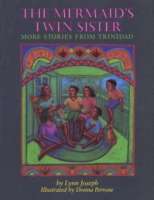
This sequel to “A Wave in Her Pocket” offers six stories based on Trinidad’s folklore, in a framework of contemporary island life.

Grace has always had wild red hair like no one else in her family and a birthmark on her shoulder that her mother told her was the mark of an angel. When Grace is sent from New York to spend the summer with her grandmother in Trinidad, she looks through the family album and discovers a blurred photograph of a stranger with a birthmark — her birthmark — and Grace is full of questions. No one is able to identify the man in the photo, and Grace is left with no choice but to find out who he is and what he might mean to her. What Grace does not know is that her search will lead to a discovery about herself and her family that she never could have imagined. Tracey Baptiste’s first novel is a tender coming-of-age story set on the island of Trinidad. Angel’s Grace explores the meaning of identity and truth, and the unbreakable ties of a family bound by love.
(Paula Wiseman Books)
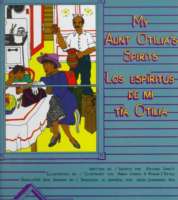
When tall, skinny Aunt Otilia comes to visit from Puerto Rico, her curious nephew finds out about her magical powers.
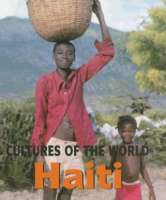
“Explores the geography, history, government, economy, people, and culture of Haiti.”–Provided by publisher.
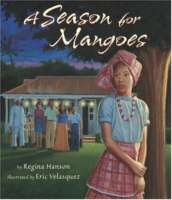
Sareen is attending her first sit-up, a Jamaican tradition that celebrates the life of a loved one who has died. The whole village has come to share memories of Sareen’s Nana. Sareen wants to tell her stories of Nana’s last mango season and their search for the perfect mango, but she’s afraid the words won’t come or that she’ll begin to cry. It’s only when Sareen faces her fear that she realizes it’s not the sadness of Nana’s death that she’ll remember best but the joy of Nana’s life.Set amid the rich culture and lush scenery of Jamaica, this moving book offers the hope of rediscovering joy after a loss and pays tribute to the remarkable power of story: to touch, to connect, and to heal.

Tom O’Connor, a poor, adventurous boy lives with his mother and half sister at a tavern on the island of Nevis in 1639. He rescues a slave from drowning, learns he is prince, loses him, travels the Southern Hemisphere in search of him, and finally brings him home to Cape Verde, hoping for a grand reward. But by the time Tom discovers that the prince is really a fisherman’s son, the loss of reward doesn’t matter-his adventures have brought him no use for greed, and as he says, “a reckless regard for other people’s life and well-being.”